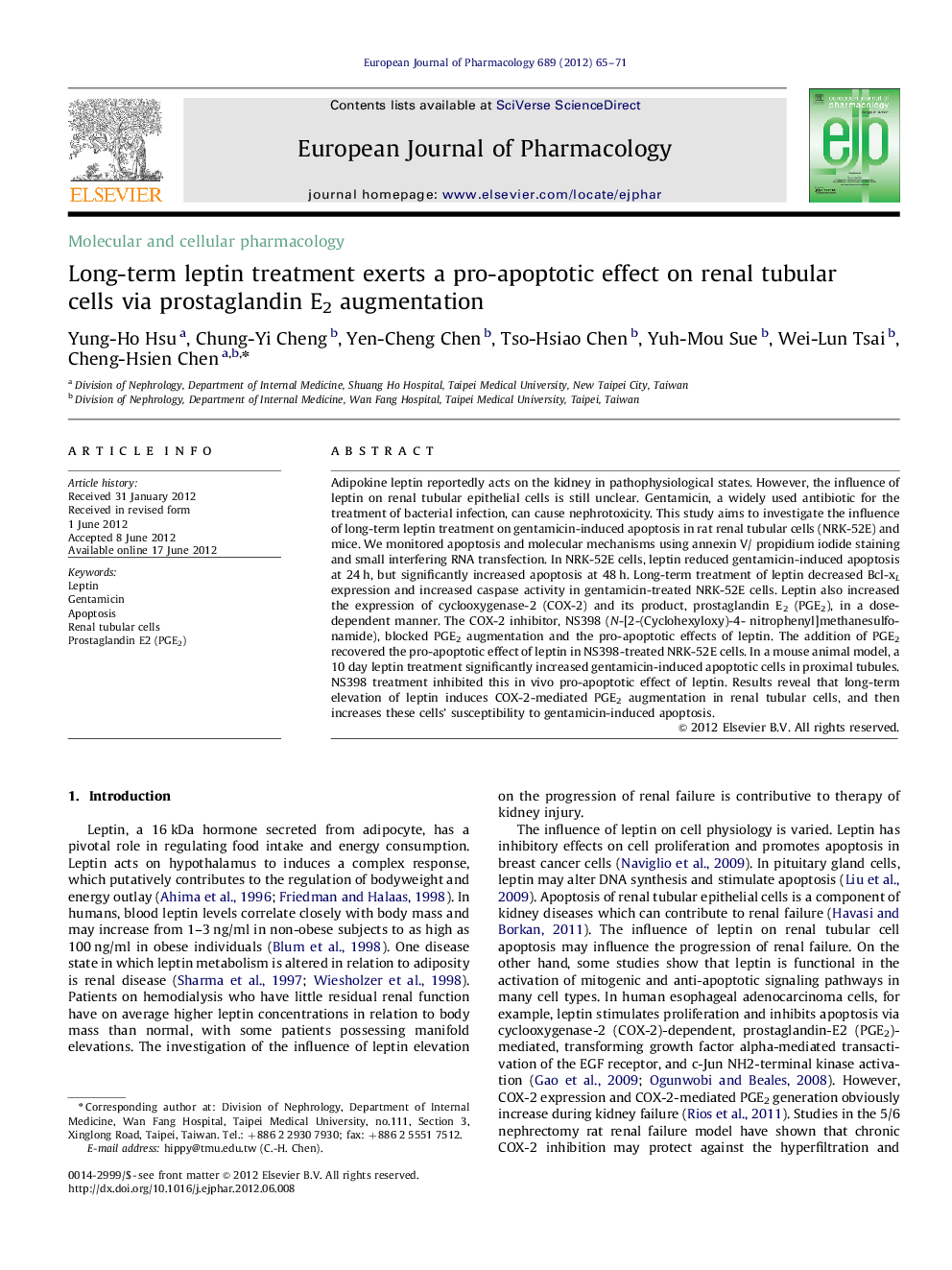| Article ID | Journal | Published Year | Pages | File Type |
|---|---|---|---|---|
| 5829401 | European Journal of Pharmacology | 2012 | 7 Pages |
Adipokine leptin reportedly acts on the kidney in pathophysiological states. However, the influence of leptin on renal tubular epithelial cells is still unclear. Gentamicin, a widely used antibiotic for the treatment of bacterial infection, can cause nephrotoxicity. This study aims to investigate the influence of long-term leptin treatment on gentamicin-induced apoptosis in rat renal tubular cells (NRK-52E) and mice. We monitored apoptosis and molecular mechanisms using annexin V/ propidium iodide staining and small interfering RNA transfection. In NRK-52E cells, leptin reduced gentamicin-induced apoptosis at 24Â h, but significantly increased apoptosis at 48Â h. Long-term treatment of leptin decreased Bcl-xL expression and increased caspase activity in gentamicin-treated NRK-52E cells. Leptin also increased the expression of cyclooxygenase-2 (COX-2) and its product, prostaglandin E2 (PGE2), in a dose-dependent manner. The COX-2 inhibitor, NS398 (N-[2-(Cyclohexyloxy)-4- nitrophenyl]methanesulfonamide), blocked PGE2 augmentation and the pro-apoptotic effects of leptin. The addition of PGE2 recovered the pro-apoptotic effect of leptin in NS398-treated NRK-52E cells. In a mouse animal model, a 10 day leptin treatment significantly increased gentamicin-induced apoptotic cells in proximal tubules. NS398 treatment inhibited this in vivo pro-apoptotic effect of leptin. Results reveal that long-term elevation of leptin induces COX-2-mediated PGE2 augmentation in renal tubular cells, and then increases these cells' susceptibility to gentamicin-induced apoptosis.
